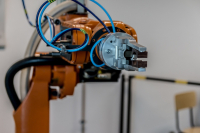A Leap Forward in Transportation Technology
Under the "Future of Flight" action plan, developed in collaboration with the aerospace industry, the UK anticipates the introduction of unmanned air taxis by 2030. The government's strategy highlights the importance of developing supporting infrastructure to make this new form of transport a viable option for UK residents. Anthony Browne, the Minister of Aviation and Technology, emphasized the potential applications of unmanned drones, including medical transport and mail delivery in remote areas.
Overcoming Challenges to Usher in a New Era of Mobility
Experts point out that overcoming infrastructure challenges and changing public perception are crucial to realizing the vision of flying taxis. Craig Roberts from PwC noted that technology and societal acceptance are significant barriers to this ambitious transportation revolution. The government's report suggests that what currently takes over an hour to travel from Liverpool to Leeds could be reduced to just 26 minutes with the use of air taxis.
Infrastructure - The Key to Success
The establishment of "mini airports" and vertiports will be essential for the successful introduction of air taxis. A temporary airport set up in Coventry in 2022 as a proof of concept demonstrated the future possibilities of urban mobility. Urban Air Port, the company behind the project, stressed that positioning transport hubs in city centers is critical for making air taxis an accessible and convenient option for the masses. The UK government's ambitious plans for 2026 and beyond signal the beginning of a new chapter in city transportation, where air taxis could revolutionize how we navigate urban landscapes.
Source: BCC















